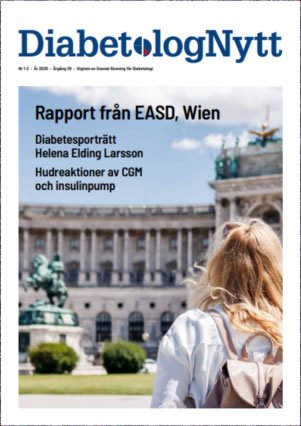Study finds taking medication at night cut risk of blood sugar disorder in half

WEDNESDAY, Sept. 23, 2015 (HealthDay News) — In surprising new research, experts report that the timing of taking your blood pressure medicine could have a big impact on whether or not you develop type 2 diabetes.
Specifically, the Spanish researchers found that taking blood pressure medications at bedtime rather than waiting until morning may cut the risk of developing type 2 diabetes by more than half.
People with high blood pressure tend to suffer from a phenomenon called "non-dipping," in which their blood pressure does not substantially decrease during sleep as it does in healthy people, the researchers said in background information.
In an initial study, the investigators found that "non-dippers" tended to have an increased risk of developing type 2 diabetes, compared with people whose blood pressure decreased normally during sleep.
A follow-up clinical trial by the same research group revealed that taking high blood pressure medications right before bed helped lower a person's sleeping blood pressure, and the risk of type 2 diabetes.
For every 14-point decrease in a person's average sleeping systolic blood pressure, they experienced a 30 percent reduction in their risk of developing type 2 diabetes, said lead author Dr. Ramon Hermida. Systolic pressure is the top number in a blood pressure reading.
"The results from our prospective study indicate lowering asleep blood pressure could indeed be a significant method for reducing the risk of developing [type 2] diabetes," said Hermida, who's a professor of medicine at the University of Vigo in Spain.
So, how are these two very different diseases connected? Hormones such as adrenaline and angiotensin play a role in the development of both high blood pressure and type 2 diabetes, explained Dr. Zachary Bloomgarden, a clinical professor of medicine at the Mount Sinai Icahn School of Medicine in New York City.
A number of blood pressure medications specifically target angiotensin, a hormone that causes blood vessels to constrict and blood pressure to rise, Bloomgarden said. Angiotensin also contributes to increased glucose (sugar) release from the liver and decreased insulin sensitivity. These factors can lead to type 2 diabetes, he said.
Drugs that target angiotensin include angiotensin receptor blockers (ARBs), ACE inhibitors and beta blockers. All three classes of medication were associated with a reduced risk of type 2 diabetes when taken at bedtime, the researchers found.
"This could be a very important study, which would influence how we treat high blood pressure in people with diabetes and people at risk for diabetes," Bloomgarden said. "These are some really interesting observations you can fit together into this idea that something's particularly going on at night."
After showing that reduced blood pressure during sleep was associated with lower risk of type 2 diabetes, the researchers decided to see whether taking an entire daily dose of one or more blood pressure medications at bedtime could drive a person's type 2 diabetes risk down even more.
The clinical trial involved more than 2,000 people who had high blood pressure but not diabetes. They were randomly assigned to take all their blood pressure medications either first thing in the morning or right before bed. During an average six-year follow up, 171 of the participants developed type 2 diabetes, the study said.
Study volunteers in the bedtime-treatment group experienced a significant reduction in their sleeping blood pressure, with "non-dipping" occurring in only 32 percent of their group, compared with 52 percent of the patients who took their medication in the morning, according to the study results.
The study found the risk of developing type 2 diabetes was 57 percent lower in the bedtime-treated group than the morning group after researchers adjusted for other complicating factors.
Specifically, the odds of type 2 diabetes dropped 61 percent for people taking angiotensin receptor blockers at bedtime compared to morning. For those on ACE inhibitors at night, the odds went down 69 percent. People on beta blockers reduced their odds of the blood sugar disease by 65 percent when they took their medicine at night, the researchers reported.
"Ingesting hypertension medications at bedtime, instead of upon awakening in the morning, improved asleep blood pressure control and markedly reduced the risk of [type 2] diabetes," Hermida said.
Earlier studies have failed to show any type 2 diabetes prevention benefit from blood pressure medications, but they may have been flawed because people were asked to take the drugs in the morning, Bloomgarden said.
"Typically we give medicines in the morning and not at night," he said. "Maybe the ideal time for blood pressure treatment is at night."
Findings from the new research were published online Sept. 23 in the journal Diabetologia.
More information
For more information on blood pressure medications, visit the American Heart Association.
SOURCES: Ramon Hermida, Ph.D., professor of medicine, University of Vigo, Spain; Zachary Bloomgarden, M.D., clinical professor of medicine, Mount Sinai Icahn School of Medicine, New York City; Sept. 23, 2015, Diabetologia, online
From healthday.com
Nyhetsinfo
www red DiabetologNytt

